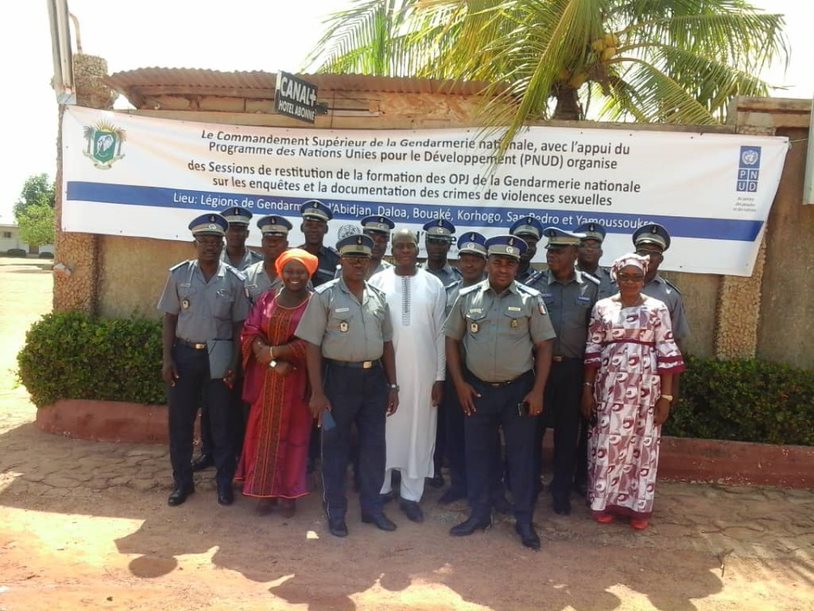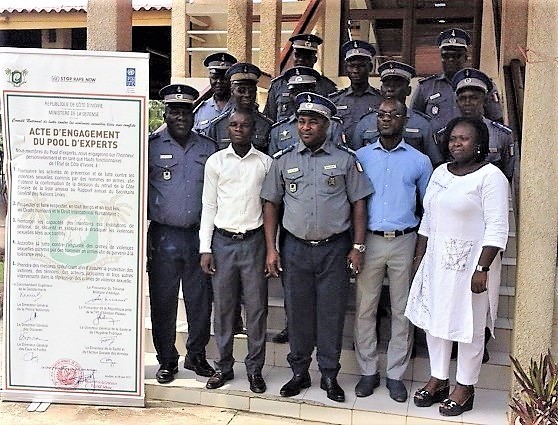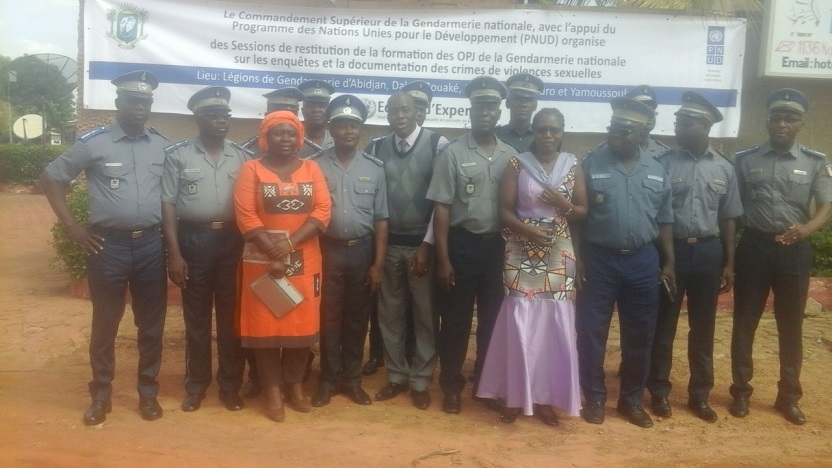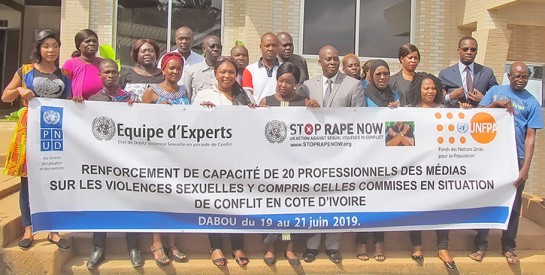FIELD UPDATES - Cote D’Ivoire
Situation Analysis
In 2011, Côte d’Ivoire witnessed an increase in rape and gang rape during the post-elections crisis. Sexual violence was committed by all parties to the conflict which included elements of the former Forces de Défense et de Securité (FDS), the former Forces armées des forces Nouvelles (FAFN), the Forces Républicaines de Côte d’Ivoire (FRCI), members of militia and associated groups. These acts were politically or ethnically motivated and inflicted publicly or in front of family members, to humiliate men and women perceived as political opponents. The political situation in Côte d’Ivoire has stabilized in recent years, with an attendant de-escalation in violence. No new cases of sexual violence by members of the Ivorian security forces were recorded in 2017, which illustrates what is possible when political will and comprehensive risk mitigation measures are put into place. As a result, in 2017, the FRCI was the first party to conflict that was de-listed from the report of the Secretary-General on conflict-related sexual violence (CRSV). While this is an important sign of progress in the consolidation of peace, challenges remain with respect to prosecuting sexual violence crimes connected with the post-electoral crisis: no cases of sexual have progressed to trial and none of the survivors have received reparations.
List of Projects
Supporting UN efforts to prevent and respond effectively to gender-based violence (GBV), including sexual violence occurring in the context of ongoing insecurity in Côte d’Ivoire
This project strengthened the UN system response to GBV in the context of on-going insecurity by bridging the gaps between humanitarian and political actors in Côte d’Ivoire through the funding of a GBV Technical Specialist. It developed integrated protection measures, reinforced service delivery and improved data management in the context of the Monitoring, Analysis and Reporting Arrangements (MARA) (creation of a database for MARA among UN entities implementing programs on GBV). Furthermore, the GBV technical specialist finalised the National Strategy against GBV agreed during a UN Action mission in 2012 and organised its official launch in 2014.
20 March 2012 to 31 October 2014
For more information on this project, please go to UNA029
Strengthening the capacity of the United Nations Operation in Côte d’Ivoire (UNOCI) in collaboration with the UN Country Team (UNCT) to implement the CRSV mandate through the deployment of a Women Protection Adviser (WPA)
The deployment of a WPA aimed to implement the CRSV mandate, based on a four-pronged approach which included building the capacity of mission components to address CRSV, establishing the MARA on CRSV, addressing CRSV commitments with all concerned parties, and strengthening coordination within UNOCI, as well as with the UNCT and other partners. The WPA released a report on rape, including CRSV cases, and their prosecution in Côte d’Ivoire in 2016. Following its publication, two ministerial circulars were adopted; one concerning the prosecution of rape and the other on the registration of complaints for GBV. A workshop presenting the results of the mapping of the National Strategy ended with a final communiqué requesting the government to accelerate the launch and implementation of the National Programme on sexual and GBV (SGBV). The communiqué was officially endorsed by the Ministry of Solidarity, Family, Women and Children. Moreover, following an intense advocacy campaign to create a national structure on CRSV, President Alassane Ouattara signed a decree on 3 June 2016 (n°2016-373) establishing a National Committee on CRSV.
14 February 2013 to 31 December 2016
For more information on this project, please go to UNA031
Support UNCT in preventing and responding to CRSV in Côte d’Ivoire
The project contributed to strengthening the investigation and reporting capacities of the national human rights institutions and civil society organisations (CSOs) on women’s human rights/SGBV/CRSV; building capacities of national actors to prevent and respond to SGBV/Women’s human rights; and supporting state institutions and non-state actors to bring justice to CRSV survivors. A Joint Mechanism bringing together the FACI, the national human rights commission, UNDP and the National Committee on Fighting against CRSV (CNLVSC) was created with the support of the TOE. The Committee is in charge of coordinating Government efforts to prevent and respond to CRSV and led to the systematic inclusion of the unit “Fight against sexual violence in conflict” in all trainings for the FACI, Police and Ivoirian Customs. Additionally, an early warning mechanism on CRSV was conceptualized in collaboration with the NGO WANEP.
2 January 2019 to 31 December 2019
For more information on this project, please go to UNA054




